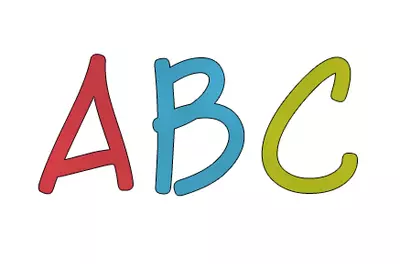Become Aware of Your Stressors and Reactions

Before you can reduce the negative effects of stress, you have to find out what causes your stress and how you cope. One tool that can help is mindfulness, which is a practice of becoming more aware of what’s going on—in your body, mind, and the environment around you. Rather than running back to a habitual pattern of avoiding or obsessing, mindfulness allows you to simply be present and notice what’s happening right now, giving you the space to choose the best way to respond.
Identify what’s going on
1. What are your sources of stress?
Strange as it may seem, we are often not aware of what causes us stress. So take time to check in with yourself, without judgment. How are you feeling? Pay attention to your body—are your muscles tense or relaxed? Is your breathing deep or shallow? Are you holding your hands open or curled in fists? You may be surprised to find when you are experiencing stress or simply reminded that you find certain situations difficult. Just let yourself acknowledge the feeling.
2. What can you do about your stressors?
Once you know your sources of stress, you can see if you can do anything to reduce or reframe them. For example:
✔ Can you avoid the stressor? For example, could you leave for work early in the morning in order to take a less busy route and avoid traffic?
✔ Can you work to resolve conflicts with others by practicing forgiveness, compassion, or setting aside time to talk through issues?
✔ Can you prepare in advance for stressful situations, such as meetings or trips to the grocery store, so you feel more confident going in?
✔ Can you practice self-compassion by setting realistic goals and letting go of perfectionism or other unrealistic expectations you might have for yourself and/or others?
✔Can you deliberately choose to view change (or anything else that is causing you stress) as a positive challenge, rather than a threat?
If you can't eliminate or reduce a stressor, simply being aware of it
can help you recognize when you need to take corrective action.
3. How do you experience stress?
 Knowing how you experience stress will help you recognize when you are at risk. When you feel stressed:
Knowing how you experience stress will help you recognize when you are at risk. When you feel stressed:
- How do you react?
- Do you become irritable?
- Do you develop tense shoulders or get a headache?
- Do you get stuck in negative thoughts?
Answering these questions could lead to greater awareness and understanding of how stress affects you.
4. How do you cope with stress?
 Do you have healthy coping mechanisms, such as exercise, meditation, or getting support from family and friends? Or do you overeat, watch too much TV, drink, or smoke to reduce stress? Pay attention: do your coping mechanisms really alleviate the stress, or do they simply offer a quick escape or chance to “numb out”? A temporary distraction may make you feel better right now, but long-term avoidance tends to create more stress, and it robs you of the chance to learn and grow from your experience.
Do you have healthy coping mechanisms, such as exercise, meditation, or getting support from family and friends? Or do you overeat, watch too much TV, drink, or smoke to reduce stress? Pay attention: do your coping mechanisms really alleviate the stress, or do they simply offer a quick escape or chance to “numb out”? A temporary distraction may make you feel better right now, but long-term avoidance tends to create more stress, and it robs you of the chance to learn and grow from your experience.
Adjust your attitude
We often respond to stressful events in ways that are not particularly helpful. Sometimes our attitudes become negative, defeatist, or worrisome, which can make it difficult to mindfully deal with stress.
If this sounds familiar to you, know that simply adjusting your attitude can reduce stress. Research suggests that if you approach a situation as a challenge, rather than a threat, you don’t trigger the stress responses that can damage health. And as a bonus, you are likely to think more clearly and have better motor control! Try the following six tips:
- When you are aware of stress, see if you can view the situation as a challenge that you have the resources to meet.
- Conversely, accept that there are events you cannot control. Don't worry about what you can't change.
- Be assertive instead of passive or aggressive. Assert your feelings, opinions, or beliefs instead of becoming angry, combative, or passive.
- Divide large tasks into smaller components to make jobs less overwhelming.
- Schedule your time wisely and honestly, always allowing time for interruptions and unplanned change.
- Learn about therapeutic approaches for dealing with distressing thoughts or feelings. One approach that you can research online or talk to a therapist about is called cognitive-behavioral therapy.

Identify stress habits
Learn how to identify stressful mental habits so you can let go of them.
The first step in letting go of mental habits or patterns of thinking that may be causing you stress is identifying them.
Try this:
- Pay attention to patterns or habits of thinking that feel problematic or time-consuming in your day (such as generalizing, comparing, placing conditions, projecting, self-diminishing, or defending).
- Write these down in a notebook (or your journal if you have one).
- Make a note when you think that way. Record the time, circumstances, and place, as well as what triggered the thought.
For the next 3 days, observe and record your habits of thinking as described above. Then, reflecting on your observations, complete this sentence:
“If I choose to let go of my _______(e.g. judgments, expectations, desires…), I would be clearer and more present to my current experience.” Be as specific as possible.

Reduce your stressors
Learn ways to manage your time, get organized, and focus on your priorities.
Manage Your Time
Tight timelines can make you feel stressed. To feel more in control of your time try:
- Getting up 15 minutes early so you aren't playing catch-up from the start
- Schedule extra time, so you won't feel you are running late all the time
- Take breaks to give yourself a breath and create more space in the day
Get Organized
- Make lists to help you remember everything (and let go of them in your mind)
- Prioritize the items on your list and check them off as you complete them
- Set goals for each day that you can reasonably accomplish
- Delegate tasks
Focus on Your Priorities
- Know your limits and say no or negotiate a reasonable timeline
- Choose your projects, accepting that you can't change everything
- Balance professional and personal life and priorities

Remember your ABCs
Check out this easy-to-remember approach for mastering stress.
Here is one way to understand stress and work to master it, the ABC approach.
- A is for the "activating event" (or stressor)
- B is for your "Belief system" and is what controls the emotion that we have in response to the activating event. Since we are in control of our beliefs, we can alter our consequent emotion.
- C is for your "consequent emotion" (or stress response).
For example:
A, the activating event: A little old lady jumps ahead of you in line at the grocery store.
If B is "How rude! She is completely inconsiderate."
Then, C is likely to be a response that is angry and emotional.
BUT, if B is "How cute, she is so old, she doesn't realize she jumped ahead of me. It reminds me of my grandma."
Then C is likely to be a response that is warm and endearing to the little old lady.
Try to work with beliefs (or attitudes) that are empathetic to others and less judgmental.
Jamieson, J.P., Nock, M.K., Mendes, W.B. (2012). Mind over matter: reappraising arousal improves cardiovascular and cognitive responses to stress. J Exp Psychol Gen;141(3), 417-22.
Keller, A., Litzelman, K., Wisk, L.E., Maddox, T., Cheng, E.R., Creswell, P.D., Witt, W.P. (2012). Does the perception that stress affects health matter? The association with health and mortality. Health Psychology; 31(5), 677-84.
Moore, L.J., Vine, S.J., Wilson, M.R., Freeman, P. (2012). The effect of challenge and threat states on performance: an examination of potential mechanisms. Psychophysiology; 49(10),1417-25.


